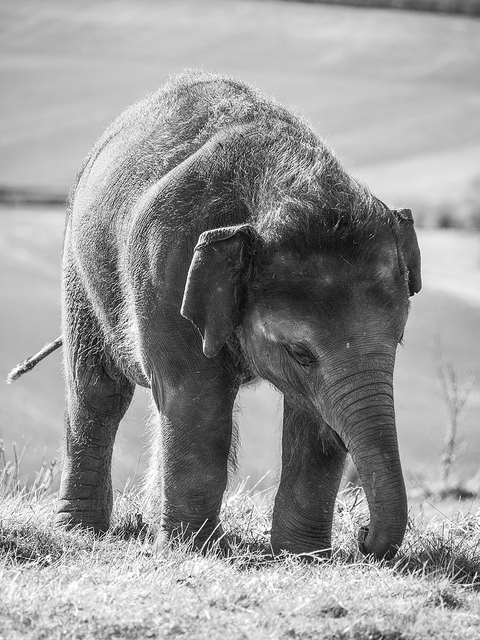If you could help save elephants from extinction, would you do it?
Well, it turns out—you can.
While habitat loss is a serious issue for elephants, the most serious threat to their survival is poaching.
In response to this, Wildaid launched a new campaign last week: #JoinTheHerd and make 2016 the Year of the Elephant. Their mission: Let this year be the year when more elephants are born than killed by poachers.
And this can only happen if the ivory trade, both legal and illegal, is completely abolished.
Where do we come in?
As Wildaid say, “When the buying stops, the killing can too.”
We need to completely eradicate the demand for ivory.
It’s currently estimated that 33,000 elephants are killed a year for ivory. In Africa, populations have been decimated, decreasing from between three and five million in the 1930s and 1940s to approximately 400,000 today. While in Asia, populations are estimated to be a mere 40,000.
At the current rate of slaughter, it is estimated that elephants will be extinct long before the midway point of this century.
Thankfully, the powers-that-be are finally starting to take this seriously. In September 2015, China and the US—two of the world’s largest consumers of ivory—pledged to ban ivory trade completely.
Yes, you read that right—Americans are amongst the largest consumers of ivory. And the problem with the legal (if still morally questionable) trade, is that it has allowed the spoils of the illegal trade to be mixed up with them—resulting in increased demand in the black market. Black market demand lies at the root of poaching.
The dual pledge didn’t have any timelines attached to it, but happily the US appear to be on track to implement regulations within the next year. Meanwhile, China is exploring how to integrate the realities of this pledge with their booming legal trade. In addition to the dilemma of what to do with the stockpiles of legal ivory intended for sale to carving factories, those same factories and associated retail stores will need to transition to new fields of business.
This may slow down China’s response time—but the elephants don’t have time.
In order to effectively address elephant poaching, the demand for ivory needs to be eliminated—not just in China and the US, but worldwide—and fast.
Humans do not need ivory—it is purely a status symbol.
Elephants on the other hand, do need their tusks—and baby elephants need their mothers.
What is urgently needed is education across the globe on the implications of supporting the ivory trade, even where it is still legal.
This is where the #JoinTheHerd campaign comes in—they’re asking us to pledge be ivory free.
But to make it meaningful, we need to also promote the cause—we should “elephantise” our profile picture on social media and recruit our family and friends to join the cause.
We are being called upon to be advocates for change, by putting pressure on our political representatives and staying in touch with the campaign so that we can continue to circulate information resources amongst our networks.
“Year of the Elephant is a trumpet call to action: we are here to ensure that promises are kept and elephants are saved. #JoinTheHerd.” ~ Wildaid.org
It’s all very do-able. Will you do it?
Join the cause at Wildaid or at Year of the Elephant.
**References:
.
Relephant:
Trunks Up: Best News for Elephants Ever.
5 Fabulous Elephant Facts. {Incredible Videos}
.
Author: Hilda Carroll
Editor: Yoli Ramazzina
Photo: Flickr/William Warby







Read 1 comment and reply